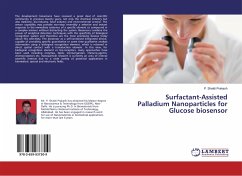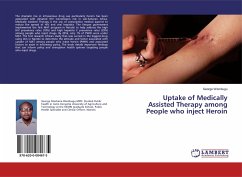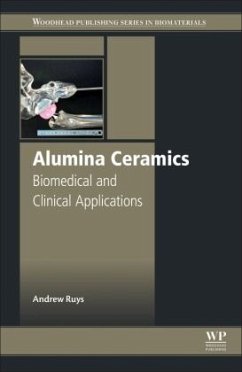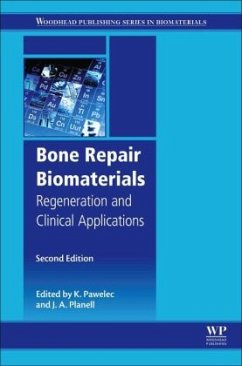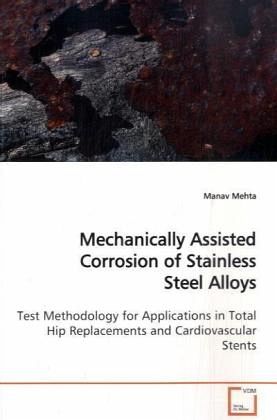
Mechanically Assisted Corrosion of Stainless Steel Alloys
Test Methodology for Applications in Total Hip Replacements and Cardiovascular Stents
Versandkostenfrei!
Versandfertig in 6-10 Tagen
39,99 €
inkl. MwSt.

PAYBACK Punkte
20 °P sammeln!
Although metals provide good mechanical propertiessuch as fracture toughness, fatigue resistance andstrong load bearing properties, they are stillsusceptible to encountering surface abrasion andwear. These local deformations on metal surfacescause passive film instability or breakdown and thesubsequent cascading events result in spontaneouselectrochemical interactions to regainelectrochemical stability. This transient phenomenonoften leads to corrosion, defined as the electrochemical attack on metal surfaces. Tribologystudies done in metal implant applications have shownthat corrosion is accel...
Although metals provide good mechanical properties
such as fracture toughness, fatigue resistance and
strong load bearing properties, they are still
susceptible to encountering surface abrasion and
wear. These local deformations on metal surfaces
cause passive film instability or breakdown and the
subsequent cascading events result in spontaneous
electrochemical interactions to regain
electrochemical stability. This transient phenomenon
often leads to corrosion, defined as the electrochemical attack on metal surfaces. Tribology
studies done in metal implant applications have shown
that corrosion is accelerated during mechanical
events such as fretting and wear.
This study presents two commonly used medical implant
applications, modular hip tapers and cardiovascular
stents. We present a test setup for each of these
implants to estimate the effects of fretting corrosion.
such as fracture toughness, fatigue resistance and
strong load bearing properties, they are still
susceptible to encountering surface abrasion and
wear. These local deformations on metal surfaces
cause passive film instability or breakdown and the
subsequent cascading events result in spontaneous
electrochemical interactions to regain
electrochemical stability. This transient phenomenon
often leads to corrosion, defined as the electrochemical attack on metal surfaces. Tribology
studies done in metal implant applications have shown
that corrosion is accelerated during mechanical
events such as fretting and wear.
This study presents two commonly used medical implant
applications, modular hip tapers and cardiovascular
stents. We present a test setup for each of these
implants to estimate the effects of fretting corrosion.






